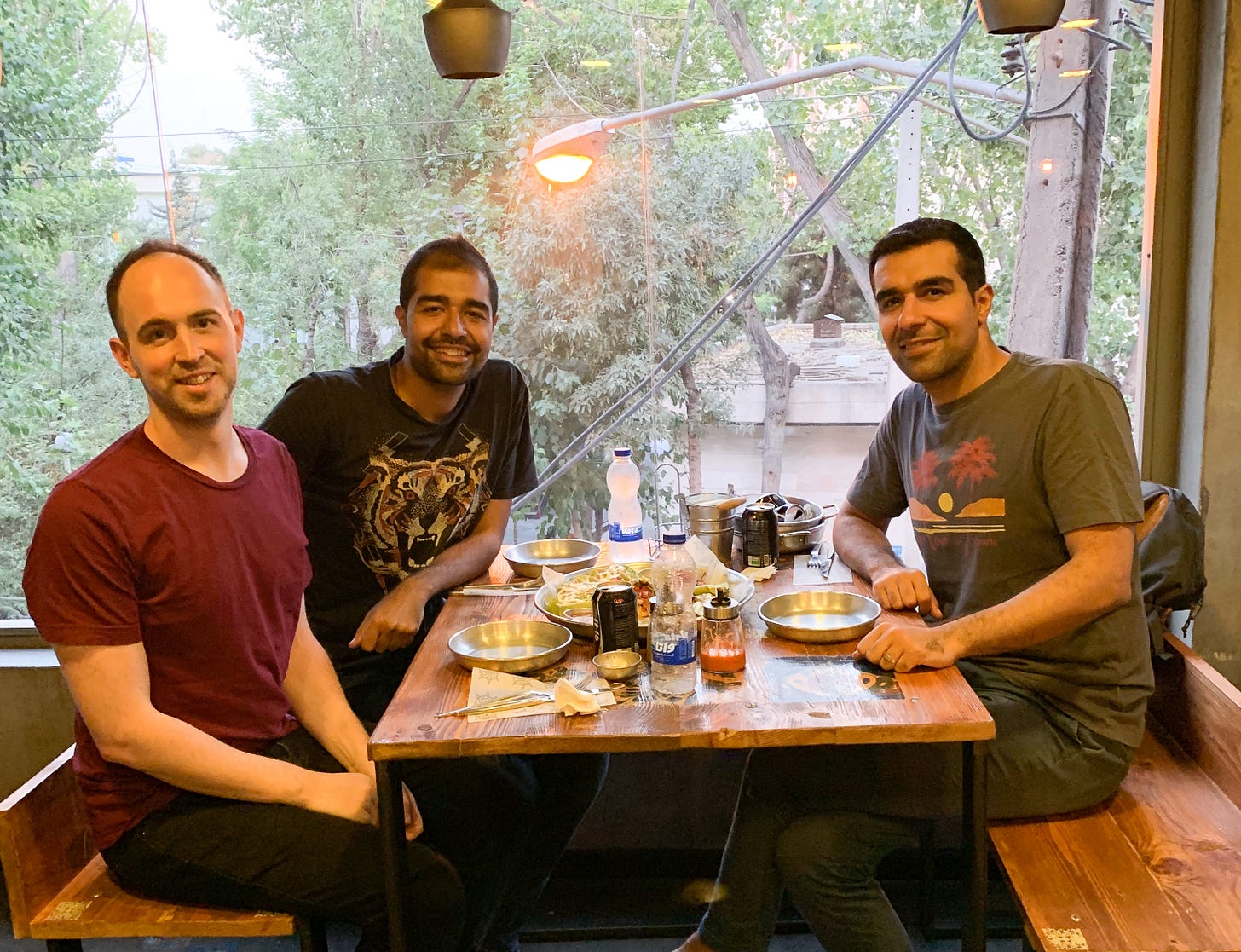Startup Spotlight #135: Infracost
Infracost is a cloud cost estimator that is open source and fully focused on developers.
Latest F2F Case Study - Case Study: Navattic Is Finding Product-Market Fit Through Building Strong Customer Relationships
I got the chance to speak with Hassan Khajeh-Hosseini, co-founder and CEO of Infracost, about what he’s working on at his startup, and any advice he has for emerging entrepreneurs.
Their mission is to empower engineering teams to use cloud infrastructure economically and efficiently.
Infracost.io starts to address this by creating cloud cost estimates for Terraform in pull requests (PR), so developers know how much their cloud resources will cost before launching them. It does this by looking at the PR and leaving a comment like ‘this change will increase your AWS bill by 25% next month’. This creates a more cost-aware engineering organization.
Khajeh-Hosseini one of the co-founders of Infracost. He is the generalist in the company, so he looks after everything from strategy to legal, marketing, finance, and anything else the company needs, which means he’s the CEO. Ali and Alistair are hisco-founders and they’ve been working together for over 10 years.
Enter Your Email Below To Receive Startup Spotlights In Your Inbox 3X Per Week:
Startup Spotlight: Infracost

Problem: A third of all cloud infrastructure spend is waste! One of the reasons is that developers, DevOps and SREs who are responsible for buying and launching these resources are never given the cost of the resources they'd like to use upfront; it is always post-launch after the bill arrives. It's like shopping on Amazon and having no check-out screen that tells you the total; your card will just get charged the total later.
Market: The public infrastructure market spend is currently $80B and this is estimated to go to $100B in 2022. It is estimated that around 30% of cloud spend is wasted!
Solution: The way Infracost works is that it looks at the Infrastructure-as-Code (IaC) files, finds all the resources that have a cost, finds their prices, calculates everything, and produces a super easy-to-digest output of the costs. This enables the team to have a quick review and discussion around the cost of the change, which is all done before any resources are launched, which creates a cost-aware culture.
Team: We are a team of 3: myself, Ali, and Alistair. Ali and I are brothers, and Alistair joined our first startup about 10 years ago. Ali has a Ph.D. in cloud cost modeling, and in our first company, we built a cloud cost management system that was used by Sony, Disney, and others to optimize their cloud costs with a focus on post-deployment costs. This is our 4th startup together, we've had 2 acquired, 1 failed, and Infracost which is live and kicking!
Recent Success:
Hosseini: We have iterated a lot on our onboarding flow. A user doesn't need to input any cloud credentials or install any agents, etc. They download Infracost, register in the command line, and we automatically populate their API key, and they can get to first success within 2 minutes. I'd like to also share our numbers here - at the start when we launched we had an 80% drop-off rate from signup to success; over many iterations, this has come down to about 20%. We have been pretty good at iterating.
Recent Struggle:
Hosseini: I've really struggled with comparison. I've compared myself and our company to other people's perceived success. This company raised more money than us, that company got acquired by Apple, etc. It was during YCombinator that I saw how the sausage is made across many companies and learned that the struggle is always there; these outward news bits are only part of the picture.
Founder Advice:
Hosseini: Back in 2012, we went to YCombinator with our first startup and Paul Graham interviewed us. His final question was 'how much money do you think you can make. We thought of a wild big number in our minds and said '$6M a year!'. He said that's too small for a Silicon Valley VC to invest. It actually turns out that business could have been a billion-dollar company. We had come from a Scottish startup background and we were self-limiting ourselves. So my advice is don't limit yourself; you can think big.
Three Cool Founders You Should Know About:
Hosseini: Here are three founders you should check out next!
Gabe Horwitz, Founder of Eqtble: eqtble is the Next-Gen HR Analytics Platform that turns employee data into insights.
Pedro Pregueiro, Founder of Satchel: Satchel makes it easy for companies to rent out unused office space.
Nikolai Johan Heum, Founder of Enode: Enode builds APIs that connect to EVs, home batteries, solar panels and other energy hardware so their customers can build awesome green energy apps.
Who should I profile next? Leave your suggestion in the comments:
Why you should become a paid subscriber to Founder to Founder:
Get connected to elite tech entrepreneurs through in-depth Founder Case Studies
Receive exclusive documents crafted by top founders on how to build your company
Access a growing audience of venture capitalists, product managers, software engineers, and people passionate about technology
Hear real, raw experiences from entrepreneurs that you won’t see anywhere else
Previous F2F Case Studies:
Case Study: Fisherman Founder Ameet Kallarackal's Trip To Catch The Product-Market Fit Fish
Case Study: PatchRx Found Their Path To Product-Market Fit Was Paved With Good Customer Questions
Previous Startup Spotlights:
If you enjoyed this article, feel free to check out my other work on LinkedIn. Follow me on Twitter @fredsoda, on Medium @fredsoda, and on Instagram @fred_soda.



